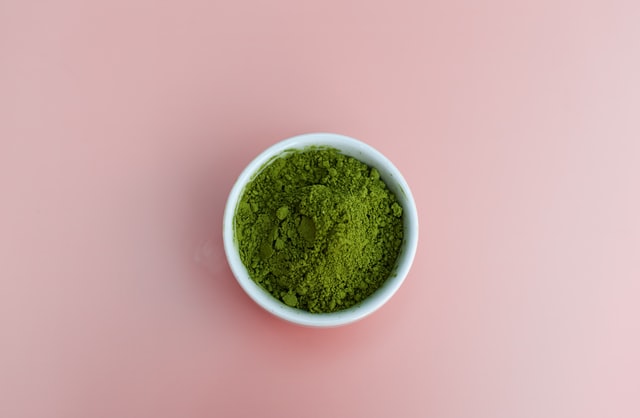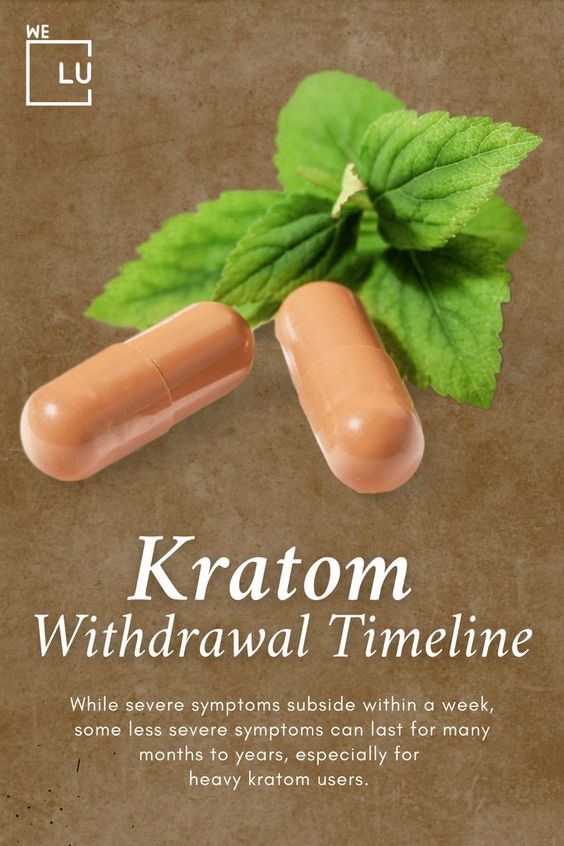What Is Kratom?
“Kratom” commonly refers to an herbal substance that can produce opioid- and stimulant-like effects. Kratom and kratom-based products are legal and accessible in many areas, though U.S. and international agencies continue to review emerging evidence to inform kratom policy. [1]
As with other substances with opioid-like effects, kratom use can lead to drug tolerance, cravings, and dependence. Eventually, this can lead to physical and psychological withdrawal symptoms when people stop using it.
“Kratom” refers to both Mitragyna speciosa, a tree native to Southeast Asia, and products derived from its leaves that are marketed as herbal supplements. Kratom leaves contain many chemical compounds (known as bioactive alkaloids) that can affect the body. The most well-studied compounds related to kratom are mitragynine and 7-hydroxy mitragynine.
Skip to:
- How Is Kratom Abused?
- Can You Have Withdrawals From Kratom?
- The Effects Of Kratom Abuse
- How Long Does Kratom Withdrawal Last?
- Kratom Withdrawal Timeline
- How Bad Is Kratom Withdrawal?
- Kratom Withdrawal Nausea
- Kratom Withdrawal Anxiety
- Kratom Detox Centers Near Me
- Kratom Detox Treatment
Learn More:

Get Your Life Back
Find Hope & Recovery. Get Safe Comfortable Detox, Addiction Rehab & Dual Diagnosis High-Quality Care.
Hotline(844) 597-1011How Is Kratom Abused?
While there are no uses for kratom approved by the U.S. Food and Drug Administration, people report using kratom to manage drug withdrawal symptoms and cravings (primarily related to opioid use disorder), pain, fatigue, and mental health problems. [2] Much is still unknown about chemical compounds related to kratom, the short- and long-term health and safety impacts of kratom use, and kratom’s potential therapeutic uses.
In some cases, lots of people use Kratom for alcohol withdrawal. Kratom has been shown to enhance one’s mood, boost energy levels, calm anxiety, relieve depressive symptoms and behaviors, and have analgesic properties. The health benefits of kratom may be beneficial for those who have problems with alcoholism and want to quit drinking.
People typically use kratom by swallowing raw plant matter in capsule or powder form, mixing kratom powder into food or drinks, brewing the leaves as tea, or taking liquid kratom extract. People who use kratom report both stimulant-like effects (increased energy, alertness, and rapid heart rate) and effects similar to opioids and sedatives (relaxation, pain relief, and confusion).
Before you start using kratom for the first time, speak with your doctor about the use of kratom to help with your symptoms. Kratom can be addictive, so avoid relying on kratom as a new source of habit.

Can You Have Withdrawals From Kratom?
Although people may use kratom to try to overcome opioid addiction, kratom itself may have the potential to be addictive. Regular kratom users may undergo a Kratom withdrawal timeline or kratom withdrawal panic attacks if they stop using it. Fatal overdoses from kratom alone appear to be extremely rare. Using kratom in combination with other drugs has been linked to deaths and severe adverse kratom effects such as liver problems. More research is needed on drug interactions involving kratom.
According to Healthline, not everyone who regularly uses kratom becomes dependent on it or experiences withdrawal symptoms when they stop using it. The risk for dependence and potential Kratom withdrawal timeline tends to increase when you take it in higher doses — usually 5 grams or more taken more than three times per day. However, this isn’t a hard and fast rule, and everyone is different. People who self-medicate with kratom for pain or take kratom to try to mitigate the withdrawal effects of other substances may be more likely to experience dependence and withdrawal. [3]

Get Help. Get Better. Get Your Life Back.
Searching for Accredited Drug and Alcohol Rehab Centers Near You?
Even if you have failed previously and relapsed, or are in the middle of a difficult crisis, we stand ready to support you. Our trusted behavioral health specialists will not give up on you. When you feel ready or just want someone to speak to about therapy alternatives to change your life call us. Even if we cannot assist you, we will lead you to wherever you can get support. There is no obligation. Call our hotline today.
(844) 597-1011The U.S. Food and Drug Administration warns consumers not to use Mitragyna speciosa, commonly known as kratom. This plant grows naturally in Thailand, Malaysia, Indonesia, and Papua New Guinea. FDA is concerned that kratom, which affects the same opioid brain receptors as morphine, appears to have properties that expose users to the risks of addiction, substance abuse, and dependence.
There are no FDA-approved uses for kratom, and the agency has received concerning reports about the safety of kratom. FDA is actively evaluating all available scientific information on this issue and continues to warn consumers not to use any products labeled as containing the botanical substance kratom or its psychoactive compounds, mitragynine and 7-hydroxy mitragynine. FDA encourages more research to understand better kratom’s safety profile, including using kratom combined with other drugs. [4]
The Effects Of Kratom Abuse
Like all drugs, kratom effects and a Kratom withdrawal timeline may depend on the amount taken, potency (concentration and strength), formulation of the product, the way it is ingested, other drugs in a person’s system, a person’s underlying medical conditions, and a person’s previous experience with the substance, among other factors. Importantly, kratom products vary, so the effects are difficult to predict. Some kratom products have been found to contain contaminants that produce results not associated with kratom or kratom compounds alone.
People who use kratom report both stimulant-like effects (increased energy, alertness, and rapid heart rate) and kratom effects similar to opioids and sedatives (relaxation, pain relief, and confusion). According to most sellers, the kratom effects can be very stimulating and a bit euphoric. However, it also has side effects that include:
- Muscle weakness
- Profuse sweating
- Dilated pupils
- Kratom headache
- Kratom hangover
- Nausea
- Stomach cramp
- Confusion
- Blurred vision
- Numbness

How Long Does Kratom Withdrawal Last?
How long does kratom hangover last? While severe symptoms subside within a week, some less severe symptoms can last for many months to years, especially for heavy kratom users. Psychological symptoms such as mood swings, depression, anxiety, and cravings may also remain.
Kratom Withdrawal Timeline
Kratom withdrawal panic attacks usually appear within 12 and 24 hours after the last dose. And symptoms can last anywhere from three to seven days. And the typical Kratom withdrawal timeline is as follows:
8-12 Hours
Flu-like symptoms and feelings of depression and anxiety are common within 12 hours after the last dose.
1-3 Days
Symptoms normally peak during these few days. Individuals are most at risk of relapsing during this period.
4-7 Days
Severe symptoms will start to fade during this period. However, individuals who are experiencing PAWS may still have certain mild symptoms.
First-class Facilities & Amenities
World-class High-Quality Addiction & Mental Health Rehabilitation Treatment
Rehab Centers TourRenowned Addiction Centers. Serene Private Facilities. Inpatient rehab programs vary.
Addiction Helpline(844) 597-1011Proven recovery success experience, backed by a Team w/ History of:
15+
Years of Unified Experience
100s
5-Star Reviews Across Our Centers
10K
Recovery Success Stories Across Our Network
- Low Patient to Therapist Ratio
- Onsite Medical Detox Center
- Comprehensive Dual-Diagnosis Treatment
- Complimentary Family & Alumni Programs
- Coaching, Recovery & Personal Development Events
How Bad Is Kratom Withdrawal?
Studies suggest that individuals may experience mild to moderate withdrawal symptoms of Kratom when they stop regular kratom use. Research shows that kratom withdrawal is different for everyone. In one study, Kratom withdrawal experience include the following: [5]
- Jerky movements of the limbs
- Disturbed sleep
- Loss of appetite
- Nausea
- Vomiting
- Abdominal pain and cramping
- Cravings
- Watery eyes
- Tension
- Sadness
- Runny nose
- Hot flashes
- Sweating
- Diarrhea
- Tremors
- Restlessness
- Anger
- Nervousness
- Depressed mood
Death from kratom misuse is extremely rare. A 2019 report linked 11 U.S. deaths (between 2011 and 2017) to kratom. Only two of those were from kratom alone. Additionally, polysubstance misuse (other drugs or alcohol) involves kratom and has been associated with severe adverse kratom effects, including liver problems and death. [6]
Kratom Withdrawal Nausea
Kratom withdrawal symptoms may cause nausea or vomiting or Kratom withdrawal can’t sleep. What helps with Kratom withdrawals? Seek help from your doctor or a healthcare professional. They may prescribe detox medications that can help alleviate problems such as anxiety and nausea.
Kratom Withdrawal Anxiety
If you were using kratom to self-medicate a mental health disorder, such as depression, anxiety, or post-traumatic stress disorder (PTSD), you should consider making an appointment with a psychiatrist or other mental health professional.
You may find that combining behavioral therapy and prescription medication helps you manage your symptoms much better than kratom can. Plus, it is safer to have a doctor or mental health professional regulating any medication you take, reducing your risk of substance abuse or dependency.

World-class, Accredited, 5-Star Reviewed, Effective Addiction & Mental Health Programs. Complete Behavioral Health Inpatient Rehab, Detox plus Co-occuring Disorders Therapy.
CALL(844) 597-1011End the Addiction Pain. End the Emotional Rollercoaster. Get Your Life Back. Start Drug, Alcohol & Dual Diagnosis Mental Health Treatment Now. Get Free No-obligation Guidance by Substance Abuse Specialists Who Understand Addiction & Mental Health Recovery & Know How to Help.
Kratom Detox Treatment
Since kratom works similarly to opioid drugs, some people try Suboxone for Kratom withdrawal. However, there is little research on whether or not Suboxone can be used to treat kratom dependence.
Although Suboxone is approved by the U.S. Food and Drug Administration for treating opioid use disorder (OUD), it’s not clear if it’s the right therapy for people using Kratom.
Can you withdraw from Kratom? If you want to ultimately come off from kratom, overcoming kratom withdrawal panic attacks is the goal of kratom detox centers, which is the first step of treatment for addiction. We Level Up has a comprehensive team prescribing medications that can alleviate your withdrawal pains while monitoring your health 24 hours during the detox, providing ample support within the scope of Kratom withdrawal timeline. We prioritize your safety and comfort because this is a fragile and challenging time for you. Taking the courage to enter Kratom detox centers is the best way to taper off Kratom.
How to detox off Kratom? Once detox is complete, a new treatment doorway opens, referred to as a residential level of care. The residential care program slowly and effectively introduces the individual into an atmosphere of therapeutic growth, marked by master’s level therapists, clinicians, group counselors, psychiatrists, and a community of like-minded individuals with the same aim: to attain sobriety and live a great life.
Kratom Detox Centers Near Me
We Level Up treatment tailors the program to the individual and the individual to the recovery program. We begin by assessing our client’s history of mental health, drugs, and alcohol-related past. The needs of each patient are specific and personalized because we aim to provide comprehensive support for mental health, addiction, and dual diagnosis treatment. The supportive environment gives patients 24-hour care for the Kratom withdrawal timeline. Most importantly, we hope to have our clients live comfortably within the facility during this crucial and fragile time.
How We Can Help? Searched for “drug and alcohol treatment centers,” or are you seeking a national inpatient rehab destination?
Some of the many modalities applied and practiced within our residential treatment facility are:
- Cognitive Behavioral Therapy
- DBT Therapy
- 12-Step Groups
- Group Therapy
We Level Up prioritizes removing temptations for relapse and applying an air of recovery into every component of the treatment timeline, including Kratom alcohol withdrawal treatment. We Level Up finds that clients living in a supportive community, especially during their early recovery, can genuinely focus on what matters most: their recovery especially tapering off Kratom.
If you or a loved one is struggling with the Kratom withdrawal timeline, reach out to We Level Up because we may be able to help you taper off Kratom.
Experience Transformative Recovery at We Level Up Treatment Centers.
See our authentic success stories. Get inspired. Get the help you deserve.
Start a New Life
Begin with a free call to an addiction & behavioral health treatment advisor. Learn more about our dual-diagnosis programs. The We Level Up Treatment Center Network delivers recovery programs that vary by each treatment facility. Call to learn more.
- Personalized Care
- Caring Accountable Staff
- World-class Amenities
- Licensed & Accredited
- Renowned w/ 100s 5-Star Reviews
We’ll Call You
Does kratom help with phenibut withdrawal?
Kratom for Phenibut withdrawal can help ease withdrawal symptoms by providing a milder alternative to stimulants.
How long do kratom withdrawals last?
While severe symptoms subside within a week, some less severe symptoms can last for many months to years, especially for heavy kratom users.
How to withdraw from kratom?
Treatment for kratom withdrawal will depend on your specific needs and the severity of your dependence on the drug. A doctor or addiction treatment professional can determine which treatment options are best for you by speaking with you and conducting a physical examination.
Kratom hangover symptoms?
Some symptoms of Kratom hangover include anxiety, appetite loss, headache, vomiting, dry mouth, mood swings, and cramp muscle.
Search for Florida Rehab Centers & Other Resources
Sources:
[1,2] Kratom – https://nida.nih.gov/drug-topics/kratom
[3] What to Expect from Kratom Withdrawal – https://www.healthline.com/health/kratom-withdrawal
[4] FDA and Kratom – https://www.fda.gov/news-events/public-health-focus/fda-and-kratom
[5] Kratom Withdrawal: Signs, Symptoms, and Treatment Options – https://americanaddictioncenters.org/withdrawal-timelines-treatments/kratom
[6] National Institute on Drug Abuse. (n.d.) Kratom.


